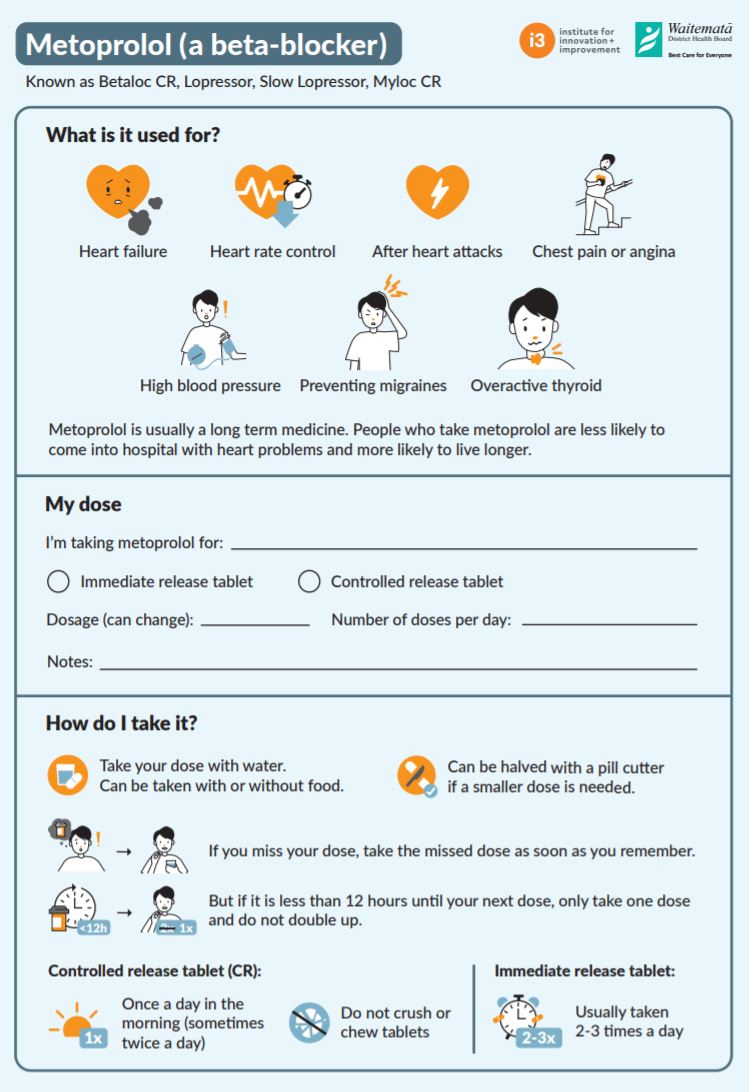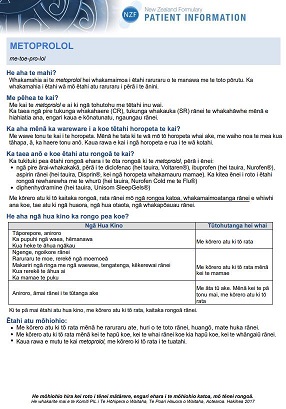November 2023: The funded brand of metoprolol slow release tablets is changingFrom November 2023, a new brand of metoprolol slow release tablets, Myloc CR will be funded. Myloc CR has the same active ingredient and works the same way as Betaloc CR. Find out more about Metoprolol: your brand is changing(external link). |
Metoprolol is used to treat many conditions including after a heart attack (to prevent heart damage), and for heart failure, high blood pressure (hypertension), and irregular heart beat. It belongs to a group of medicines called beta-blockers. Metoprolol works by slowing down your heart rate and making it easier for your heart to pump blood around your body. Metoprolol is also used to prevent migraine headaches.









